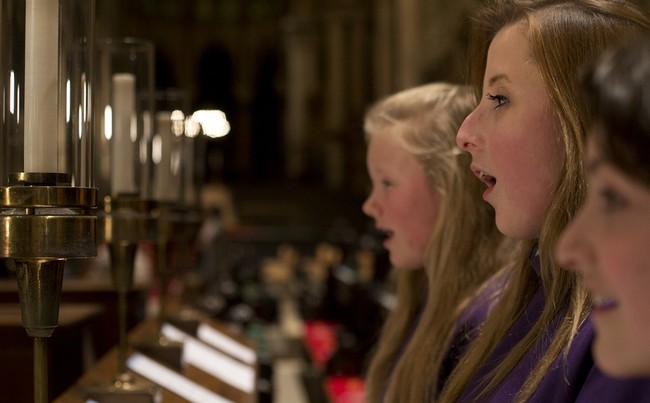We support our Publishers and Content Creators. You can view this story on their website by CLICKING HERE.

First of all, let’s get one thing clear: Christmas is not over. I know that many people are starting the de-Christmasization of their homes, and my local grocery store was already tearing down the holiday items and setting up for Valentine’s Day on December 23.
Advertisement
But technically, the Christmas season begins on December 25, despite the tradition among retailers and Instagram influences that it starts right after the back-to-school sales. It does not end until Epiphany. So leave that tree right where it is, roast some more chestnuts, and pour yourself another glass of whatever libation you favor. We still have celebrating to do.
As an ex-Episcopalian, I am fond of saying that if you really want to do Easter/Pascha right, you need to be Orthodox, but if you want to do Christmas right, you need to be Anglican. Of course, “Anglican” may be too strong a term. Given the Church of England’s death spiral into all things DEI (along with the government), a flat tire on a February morning in downtown Duluth, Minn., is probably more festive than anything the COE is doing, even when it comes to Christmas.
Writing for the Telegraph, Celia Walden notes that as Advent got underway, priests in England began to receive emails “suggesting” that the musical selections for the various services be altered so as to be more inclusive. For example, “O Come, O Come, Emmanuel” was seen as potentially problematic because it suggests that non-Christian faiths may be “outside of God’s grace.”
Advertisement
Also on this year’s naughty list was “Lo, He Comes With Clouds Descending.” The issue with that song was that the second verse is troubling since it contains words that state Christ is the true Messiah. What did they expect churches to do? Have everyone stand around with their little hand-held candles and sing “Jingle Bell Rock?”
Now, I don’t like flaunting my fancy seminary education, but I think I’m on pretty safe ground here when I say that those two sentiments are central tenets of Christianity. In fact, it has been that way for years. A lot of years. The idea that Christians should not adhere to the exclusivity of their faith is ludicrous. A Jew or a Muslim is as convinced that their faiths are the true ones as any believing Christian. No one is suggesting that Muslims alter any aspects of Islam to make non-Muslims feel less self-conscious.
Walden reported that an email that went out to the Birmingham diocese told clergy members to “Try to use language that won’t add further confusion or tension or take away anything from the good news of the Nativity.” I may be going out on a limb here, but I’ll take the risk and posit that the birth of the savior of mankind is the reason we celebrate Christmas. That is the good news of the Nativity. I mean, Christ is right there in the name.
Advertisement
One of the issues that has plagued the evangelical movement has been seeker-sensitive churches. These are churches with an almost nervous avoidance of sin and the Gospel since such subjects may not give visitors a suitable case of “the feels.” Instead, churchgoers are treated to light shows, rock bands, circus performers, and who knows what else to keep them coming back for a good time.
The idea is that the Gospel may eventually get to these people through osmosis or something. By contrast, the Church of England doesn’t even seem interested in presenting the Gospel through anything, up to and including osmosis. It’s almost as if the church wants to make sure Christ is not present. And given the tenor of things in the United Kingdom at the moment, that may be the point.

 Conservative
Conservative  Search
Search Trending
Trending Current News
Current News 







